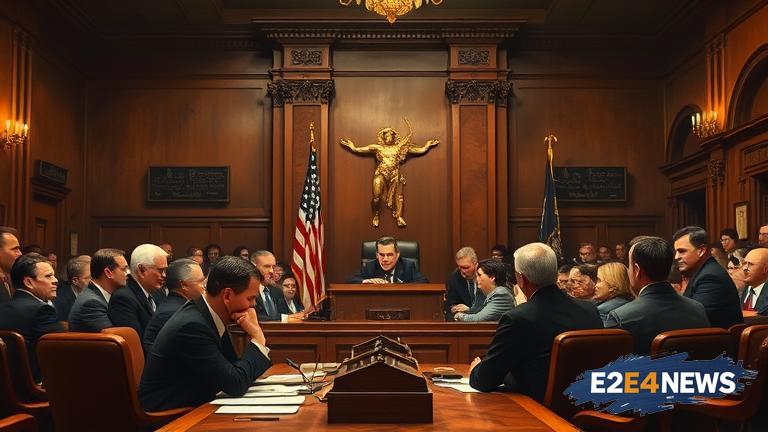The impeachment of President Richard Nixon was a pivotal moment in American politics, marking the first time a U.S. president had faced impeachment proceedings. On July 27, 1974, the House of Representatives voted to begin the impeachment process, citing Nixon’s involvement in the Watergate scandal. The scandal, which began with a break-in at the Democratic National Committee headquarters, had led to a wide-ranging investigation that implicated Nixon and several of his top aides. As the investigation unfolded, it became clear that Nixon had been involved in a cover-up, using his executive powers to obstruct justice and hide the truth from the public. The House Judiciary Committee, led by Chairman Peter Rodino, had been investigating Nixon’s actions for months, gathering evidence and testimony from key witnesses. On July 24, 1974, the Supreme Court ruled that Nixon must turn over tapes of conversations he had recorded in the Oval Office, which provided further evidence of his involvement in the scandal. With the tapes in hand, the Judiciary Committee voted to recommend articles of impeachment against Nixon, charging him with obstruction of justice, abuse of power, and contempt of Congress. The full House of Representatives then voted to begin the impeachment process, with 410 members voting in favor and 4 opposed. The impeachment proceedings marked a significant shift in the balance of power between the executive and legislative branches, as Congress asserted its authority to hold the president accountable for his actions. The impeachment process was a complex and contentious one, with many lawmakers struggling with the weight of their decision. Some argued that Nixon’s actions were egregious enough to warrant impeachment, while others believed that the process was a partisan witch hunt. As the proceedings unfolded, the nation watched with bated breath, wondering what the outcome would be. Would Nixon be impeached and removed from office, or would he manage to cling to power? The answer would come in the days and weeks that followed, as the House and Senate debated the merits of the case. In the end, Nixon’s fate was sealed, as he resigned from office on August 9, 1974, rather than face the certainty of impeachment and removal. The impeachment proceedings had a profound impact on American politics, setting a precedent for future presidents and reinforcing the importance of congressional oversight. The scandal also led to a renewed focus on government transparency and accountability, as lawmakers and the public demanded greater access to information and more stringent ethics laws. Today, the Nixon impeachment remains a significant chapter in American history, a reminder of the importance of checks and balances and the rule of law. The proceedings also highlighted the critical role of a free press in holding those in power accountable, as journalists and investigators worked tirelessly to uncover the truth. In the years since, the Nixon impeachment has been the subject of numerous books, films, and documentaries, cementing its place in the national consciousness. As the nation continues to grapple with the challenges of governance and accountability, the lessons of the Nixon impeachment remain as relevant as ever. The impeachment proceedings also had a profound impact on the Republican Party, leading to a period of soul-searching and introspection. Many Republicans were forced to confront the reality of Nixon’s actions and the damage they had done to the party’s reputation. In the end, the party emerged stronger and more resilient, with a renewed commitment to ethics and transparency. The Nixon impeachment also marked a significant turning point in the career of Gerald Ford, who would go on to become president after Nixon’s resignation. Ford’s handling of the transition and his subsequent presidency were shaped by the events of July 27, 1974, as he worked to heal the nation and restore trust in government. As the years have passed, the Nixon impeachment has become a touchstone for discussions of presidential power and accountability, with many drawing parallels between Nixon’s actions and those of subsequent presidents. The proceedings also highlighted the importance of congressional oversight and the need for robust checks and balances, as lawmakers worked to hold the executive branch accountable for its actions. In the end, the Nixon impeachment was a testament to the strength and resilience of American democracy, as the system of government established by the Founding Fathers proved capable of withstanding even the most significant challenges.
